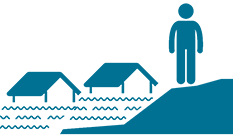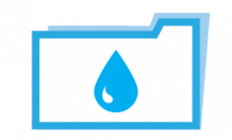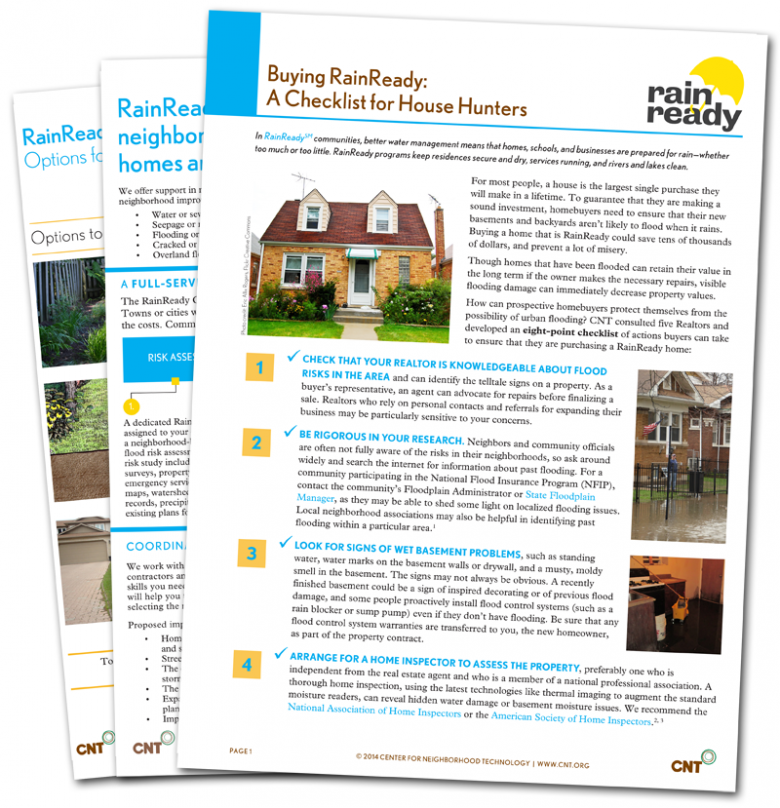Before the event
If there are weather warnings, prepare your home. Remove leaves and debris from gutters, clear your storm drains and drainage areas of any debris or trash, make sure that windows and doors are properly secured, and, if you have a sump pump, make sure that it is working. If there’s a risk of severe flooding in your area, move any valuable belongings to the upper floors, charge your cell phone, put fresh batteries in your flashlights, and make sure you have adequate food and water for a few days.
During the event
If floodwater enters your property, call your town or city. Even if they can’t come out to your property, it is still important that they have a record of your flooding incident for future reference.
If there’s water in your home and a sump pump is ineffective, ensure that water stays away from outlets and other electrical sources. Carefully turn off your main electrical switch while standing on a dry, non-conductive surface such as heavy rubber, plastic, or dry wood. Also be alert for gas leaks. If the water rises high enough to extinguish the pilot light on your water heater or furnace, it may be letting gas into the property. Turn off the gas supply to these units if possible. Do not use candles, lanterns, or open flames in the area, and do not smoke until you are absolutely certain that gas leaking is not an issue.
If the waters start to rise inside your house before you have evacuated, retreat to the second floor, the attic, or, if necessary, the roof. Take dry clothing, cell phone, flashlights, and a portable radio with you. Then, wait for help.
If you decide to leave your property, do not walk or drive through flooded areas. Since electric current passes easily through water, stay away from downed power lines and electrical wires.
After the event
Wait for the water to drain out of the property before reentering, and check for structural damage before you enter any buildings. Upon entering the building, do not use matches, cigarette lighters, or any other open flames, since gas may still be trapped inside. Keep the power off until an electrician has inspected your system for safety.
If your home, apartment, or business has suffered severe damage, immediately call the insurance company or agent who handles your flood insurance policy to file a claim.
Even if you are not insured, make a written record of the date and time the flooding started and ended, and note the depth of the water. Document and photograph items that were damaged, and record their estimated value. Good documentation is critical to your ability to get compensation, whether from government or from your insurance. Find out if your neighbors have been flooded and get them to document any damage. Strength in numbers often helps.
If damage is severe, consider a professional cleaning service. If you are cleaning the property yourself, wear appropriate protection, such as rubber boots and gloves. Make sure to disinfect any affected area with a bleach and water solution, and always save receipts for out-of-pocket expenses on clean-up.
Once you've cleaned up, organize to meet with your elected leaders and request that they develop a RainReady plan for the neighborhood.





 Strengthening Transit Through Community Partnerships
Strengthening Transit Through Community Partnerships






